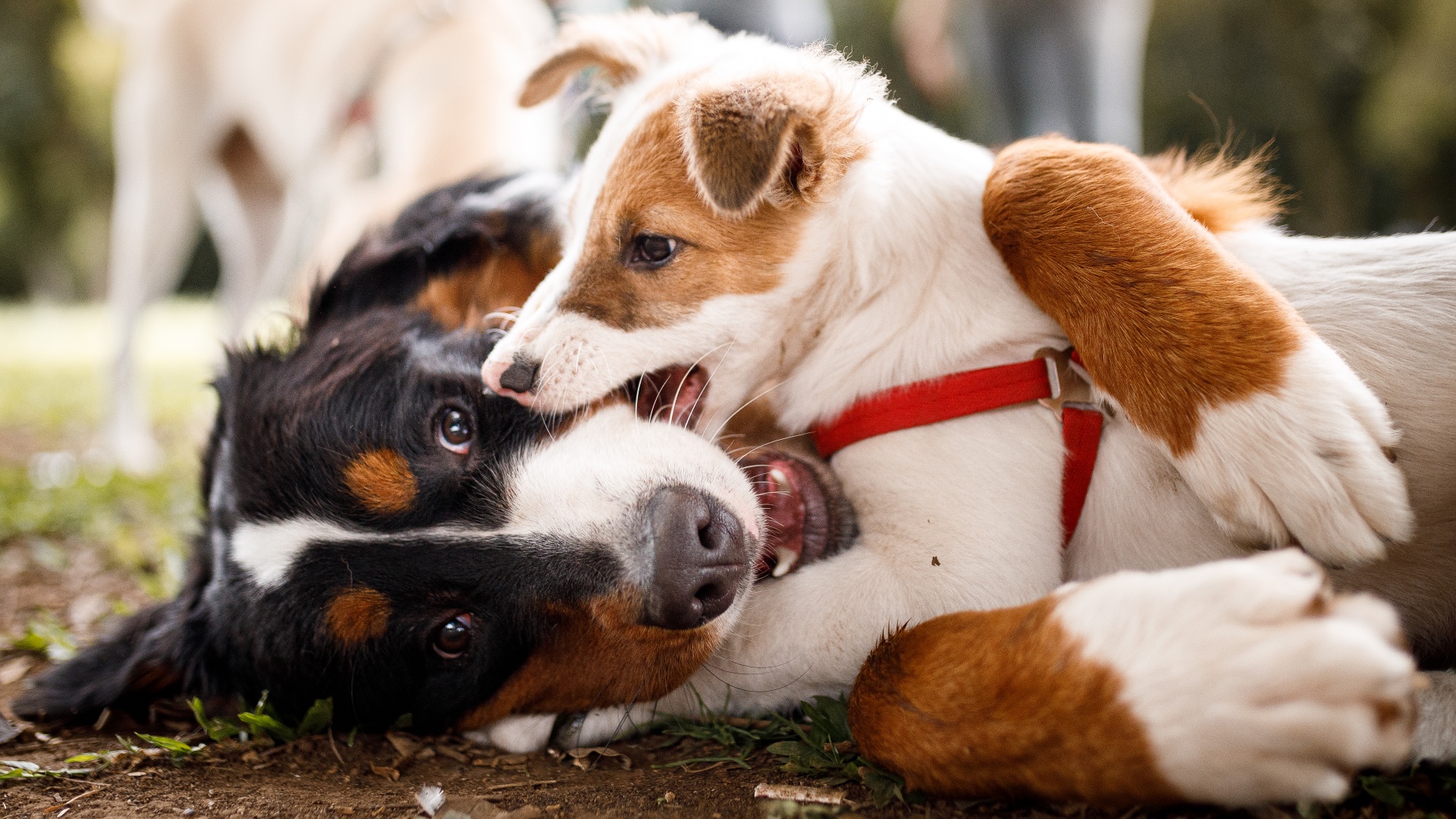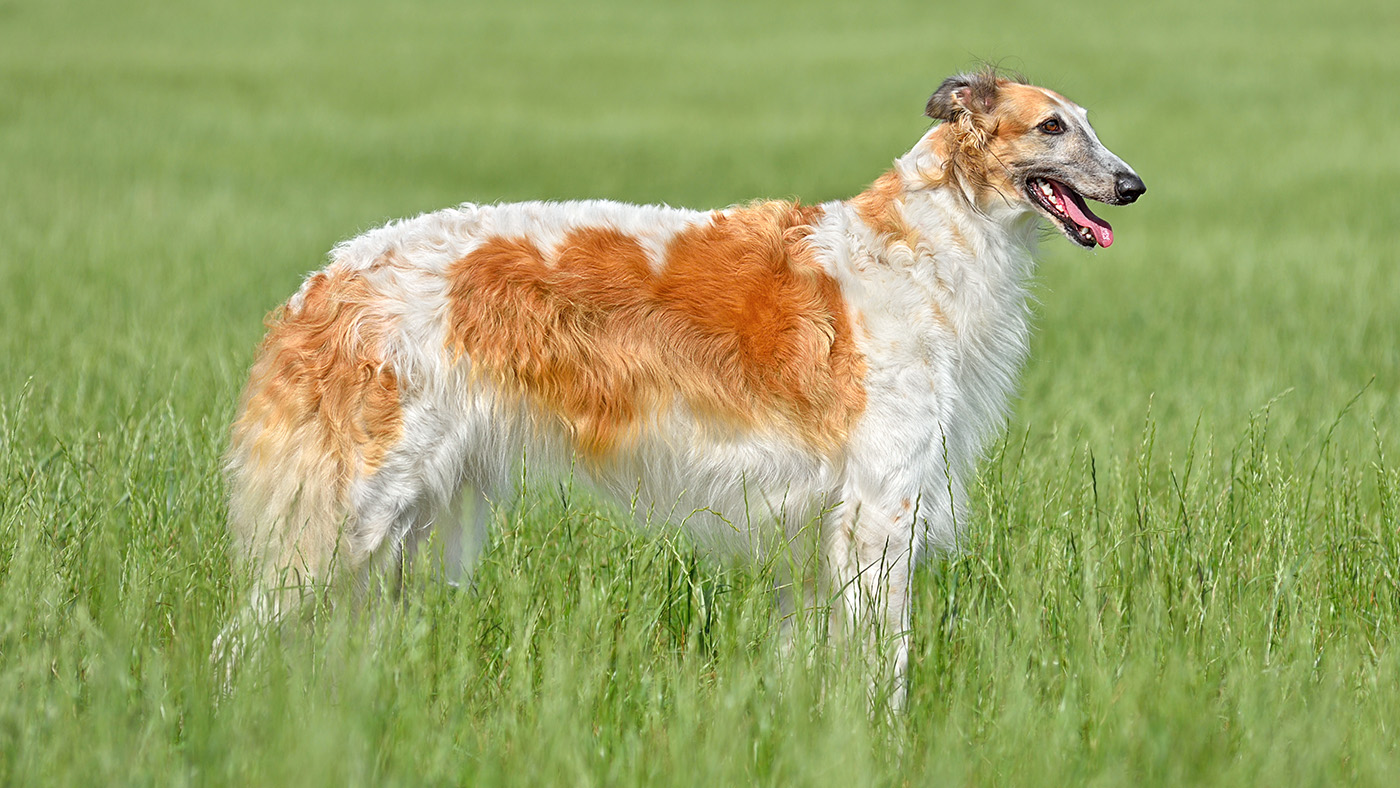Trainer debunks four common puppy biting myths
Puppy biting is a normal behavior — here's how to handle it according to an expert

Disclaimer: Unless specifically stated, any expert comments quoted in this news piece have been taken directly from the video cited below.
If you've just welcomed a new fur friend into your family — congratulations! Puppies can bring so much joy to our lives, but there's no denying that the first year of their life can bring its fair share of challenges too.
How to stop a puppy biting is a common question amongst new pet parents but rest assured, while things like biting, mouthing, and nipping can often cause us to become concerned, biting is a very normal puppy behavior.
There are lots of unhelpful myths floating around about puppy biting that can result in dog owners either panicking that something is wrong with their little bundle of fluff, or inadvertently adopting incorrect training methods.
To help you figure out what's normal and what's not, expert trainer Alex Sessa, founder of Peach on a Leash, has shared a useful video to Instagram in which she debunks the most common puppy biting myths.
Read on to find out more...
A post shared by Peach On A Leash Dog Training (@peachonaleash)
A photo posted by on
1. Puppy biting is a behavior problem: "Puppy biting is actually totally developmentally normal, especially in puppies under six months of age", explains Sessa.
PetsRadar Newsletter
Get the best advice, tips and top tech for your beloved Pets
2. Bitey puppies are trying to exert dominance: "This is a really common myth that we hear but it has no evidence or basis in reality," says Sessa. "The good news is that your puppy or your dog is not trying to exert dominance."
3. Tiring a puppy out will prevent biting: "Often, the opposite is the case. Puppies that are trying to communicate a need — such as they're tired, they're hungry, they're overstimulated, they're bored — will often use biting as a way to communicate that.
"So, the more tired a puppy is, sometimes the bitier they are. So you want to make sure that puppies are getting naps and rest periods during the day. Otherwise, exercise, exercise, exercise, can lead to a bitier puppy," Sessa explains. "We do want to exercise them, but don't overdo it."
4. A bitey puppy is more likely to become aggressive over time: "The good news is, this is not the case," says Sessa. "We have no data to support that and in fact, when we're concerned about aggression in puppies, we're looking for very different behaviors than play biting — play biting is not an indicator of future aggression."
If you're worried about your puppy's biting, here's a few top tips from Sessa to help you address it:
- Focus on the root cause of the behavior — do you need to add a meal for your pup in the middle of the day, or add extra rest time?
- For breeds more likely to enjoy chasing & biting, provide appropriate outlets for the behavior such as tug, dog-dog play, or a flirt pole
- Avoid yelling or screaming when your pup makes contact with you. Turn away, cross your arms, and/or remove yourself from the area if needed and avoid using your hands to push your puppy away. (This often turns into a fun game for them.)
- Make sure you have a variety of toys available that your pup can self-redirect to as they realize that biting you isn’t an effective way to elicit play!
And remember, puppy biting is a normal part of your little fur friend's development and is usually their way of expressing a need, such as hunger, fatigue, boredom, or teething pain.
Don't ignore the behavior and don't punish it as neither of these things will work. Instead, figure out what need your puppy is trying to communicate and do your best to meet it.
As always, if you're at all concerned about your puppy, consult your vet or a qualified trainer.

Kathryn is a freelance writer who has been a member of the PetsRadar family since it launched in 2020. Highly experienced in her field, she's driven by a desire to provide pet parents with accurate, timely, and informative content that enables them to provide their fur friends with everything they need to thrive. Kathryn works closely with vets and trainers to ensure all articles offer the most up-to-date information across a range of pet-related fields, from insights into health and behavior issues to tips on products and training. When she’s not busy crafting the perfect sentence for her features, buying guides and news pieces, she can be found hanging out with her family (which includes one super sassy cat), drinking copious amounts of Jasmine tea and reading all the books.
